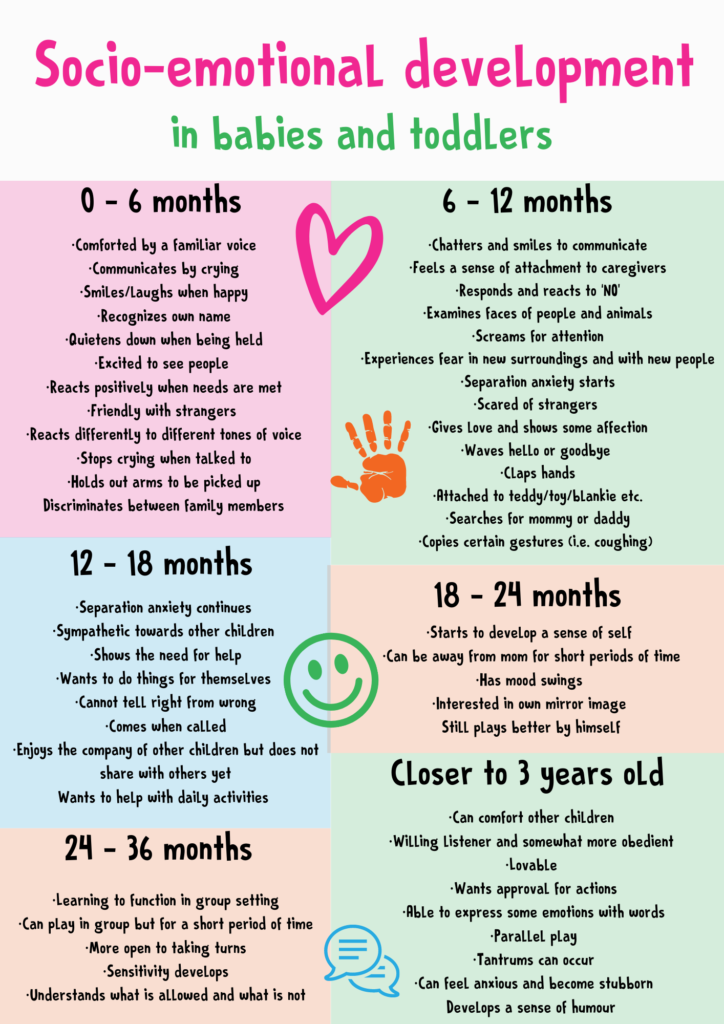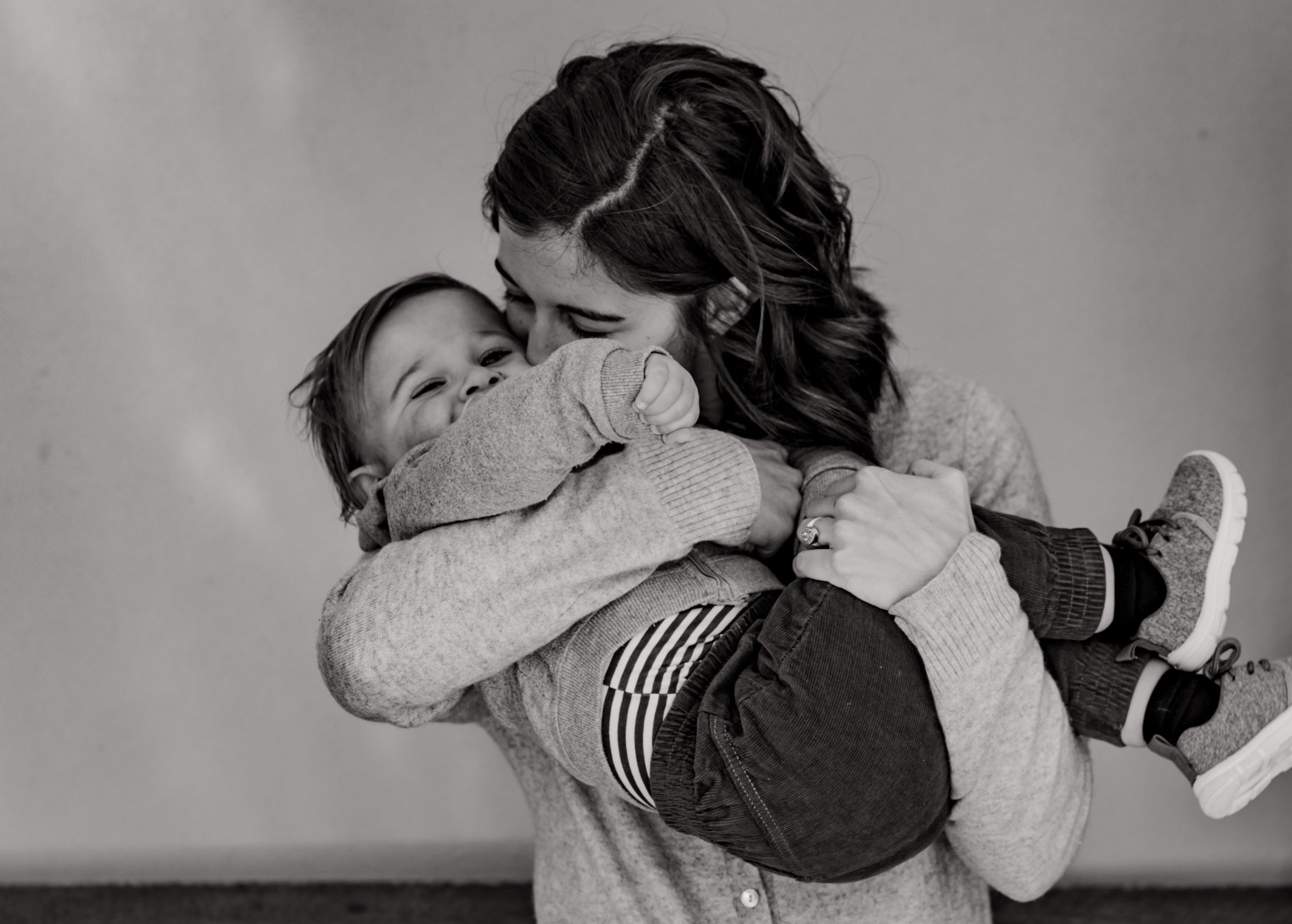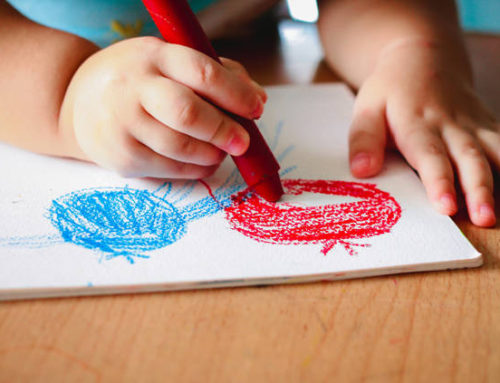‘Socio’ refers to social development. This includes relating to others and their environment, learning to adhere to social norms and even interpreting gestures and body language. ‘Emotional’ involves our children’s emotional development which is made up of awareness, expression, and regulation of emotions. Social and emotional development are very much inter-linked which is why we address them together.
Babies socially engage and interact primarily with their caregiver(s). The quality of their social and emotional engagement is determined by their bonding and attachment to their caregiver(s) whom they trust. Babies need to feel secure, loved and connected. Babies often give signals when ready or not ready to engage and communicate. It is important for us as caregivers to correctly interpret these signals to ensure to be guiding your child’s socio-emotional development appropriately. Responding to a baby pointing at something or trying to verbalise a word helps our babies feel heard and understood. Sensitive caregiving (being in tune to our babies needs) assures them of their needs being met and this results in happier and emotionally healthier children.
Toddlers are discovering their autonomy and independence from their caregiver(s). The more independent they are, the more frustrated they become as they are often learning new skills that they haven’t quite mastered yet. This can lead to the expression of BIG emotions and even tantrums. Our greatest role in developing our children’s EQ is to help them to recognise, identify and understand their emotions. The more they understand why they are feeling a certain way, the better they will learn to calm themselves down which is appropriate social behaviour. Boundaries are essential in helping children to feel safe, loved and cared for. Practicing consistency within the boundaries you set makes the world of difference to a child’s sense of security.
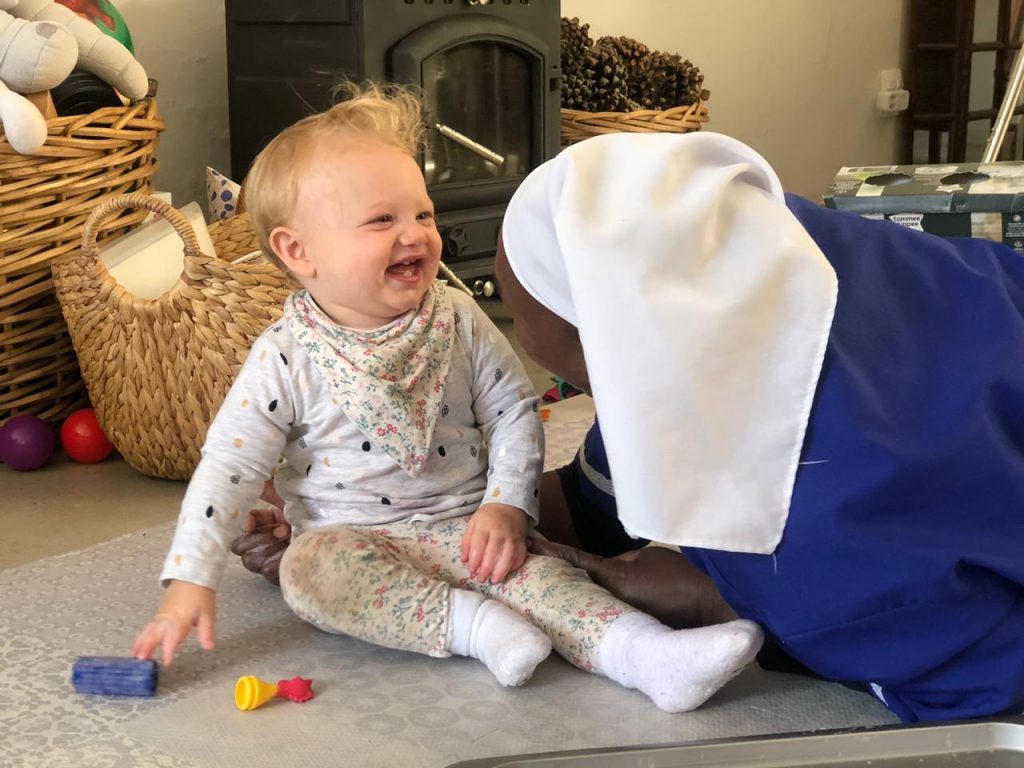
We believe, as parents, it is very difficult to understand your children if you do not even understand yourself. This is why we advocate for parents to learn more about the Four Temperaments. In understanding more about the way you are and why you react or don’t react in certain situations, you can better understand your child and what makes them uniquely who they are. Embracing your child for who they are and not who you expect them to be is the greatest start at getting to know what makes them tick and ultimately building a better relationship with them.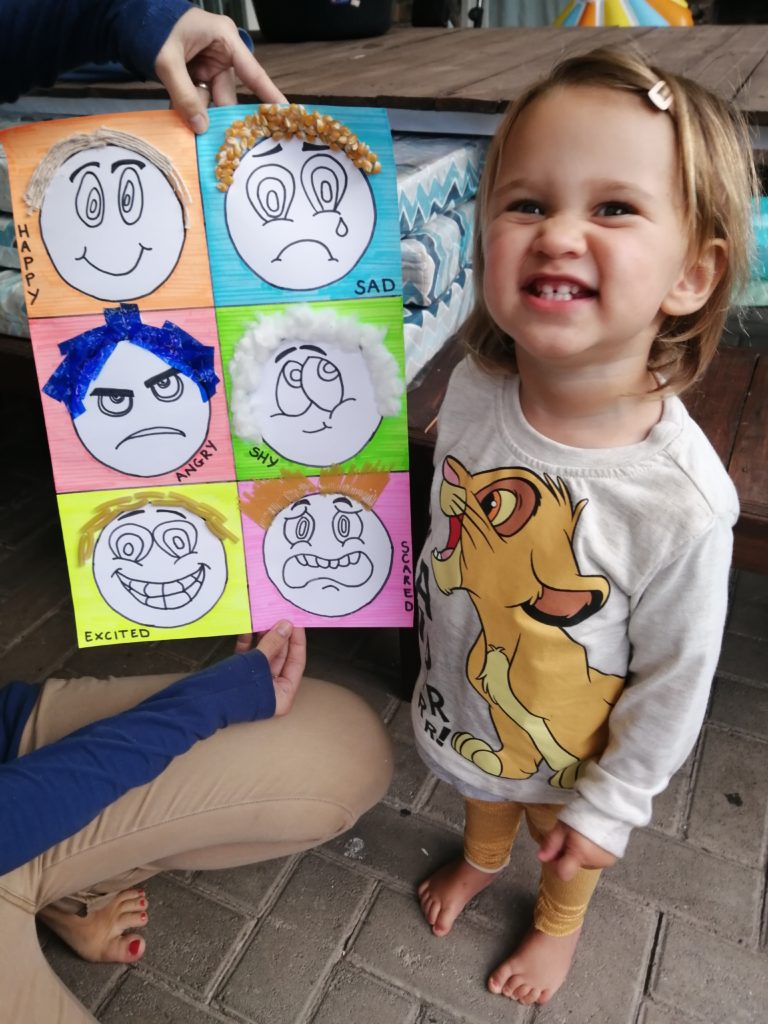
Through research and studies proven, we know that EQ is often more important to the future success and happiness of an individual than IQ is. We as parents can often tend to place too much emphasis on a child’s academic capacity, rather than their ability to understand their emotions and the emotions of others. This is how we learn to manage others and be great leaders, to develop empathy and resolve conflicts appropriately.
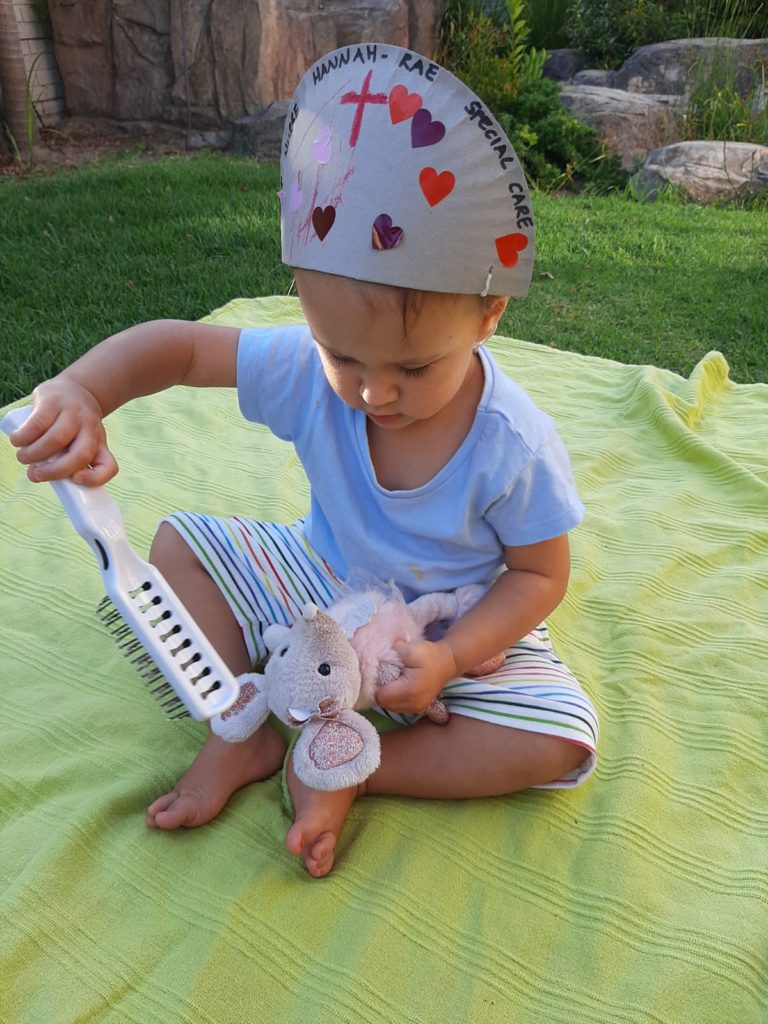 Play is the best way to help our little ones develop socially and emotionally. For babies, different genres of music evoke different emotions and it’s wonderful to expose our babies to this – dance with them, sing to them and play music for them while you play together. For toddlers, using pretend play is a creative, fun and exciting way to teach them about social and emotional skills. Pretending to be a doctor, shopkeeper, policeman or dancer helps them discover real-life situations in a safe environment. Here they have the freedom to explore, learn and figure out what’s socially appropriate. Art, music and sensory, messy play activities also help our little ones get in touch with their deep feelings by expressing themselves.
Play is the best way to help our little ones develop socially and emotionally. For babies, different genres of music evoke different emotions and it’s wonderful to expose our babies to this – dance with them, sing to them and play music for them while you play together. For toddlers, using pretend play is a creative, fun and exciting way to teach them about social and emotional skills. Pretending to be a doctor, shopkeeper, policeman or dancer helps them discover real-life situations in a safe environment. Here they have the freedom to explore, learn and figure out what’s socially appropriate. Art, music and sensory, messy play activities also help our little ones get in touch with their deep feelings by expressing themselves.
Most importantly, your child is learning from you all the time, by the way you handle your own emotions, the way you respond and the way you interact with others. Don’t underestimate what wonderful socio-emotional learning opportunities you can create amidst the ongoing of your day-to-day life! Please feel free to contact any of us at Nanny ‘n Me if you’d like more support in this area.
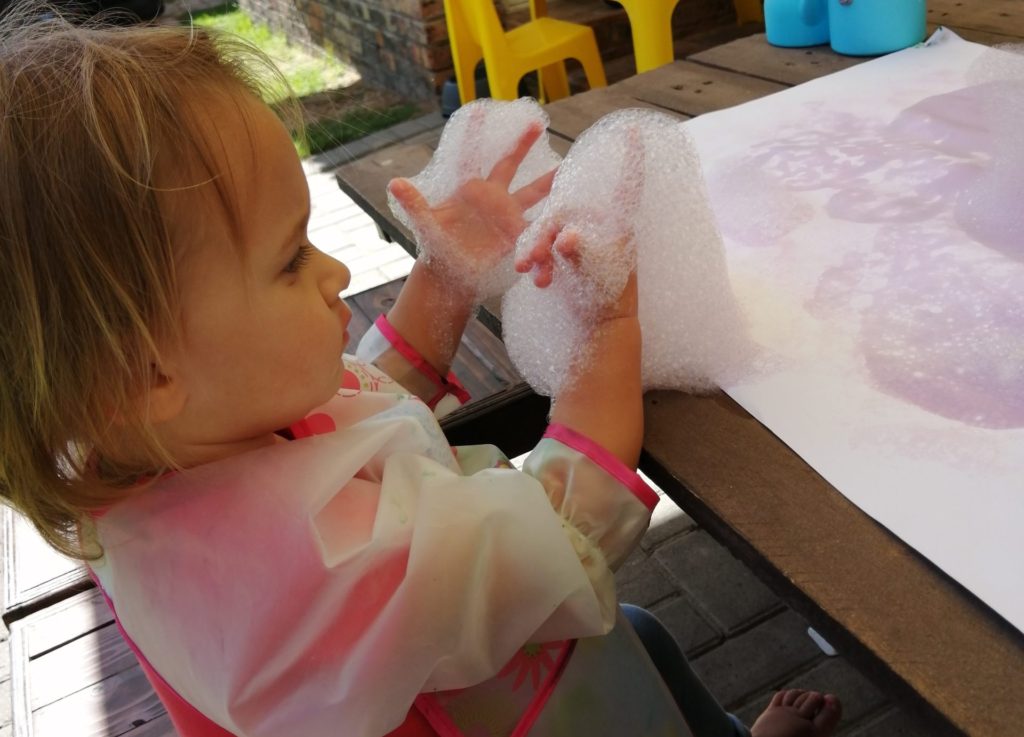
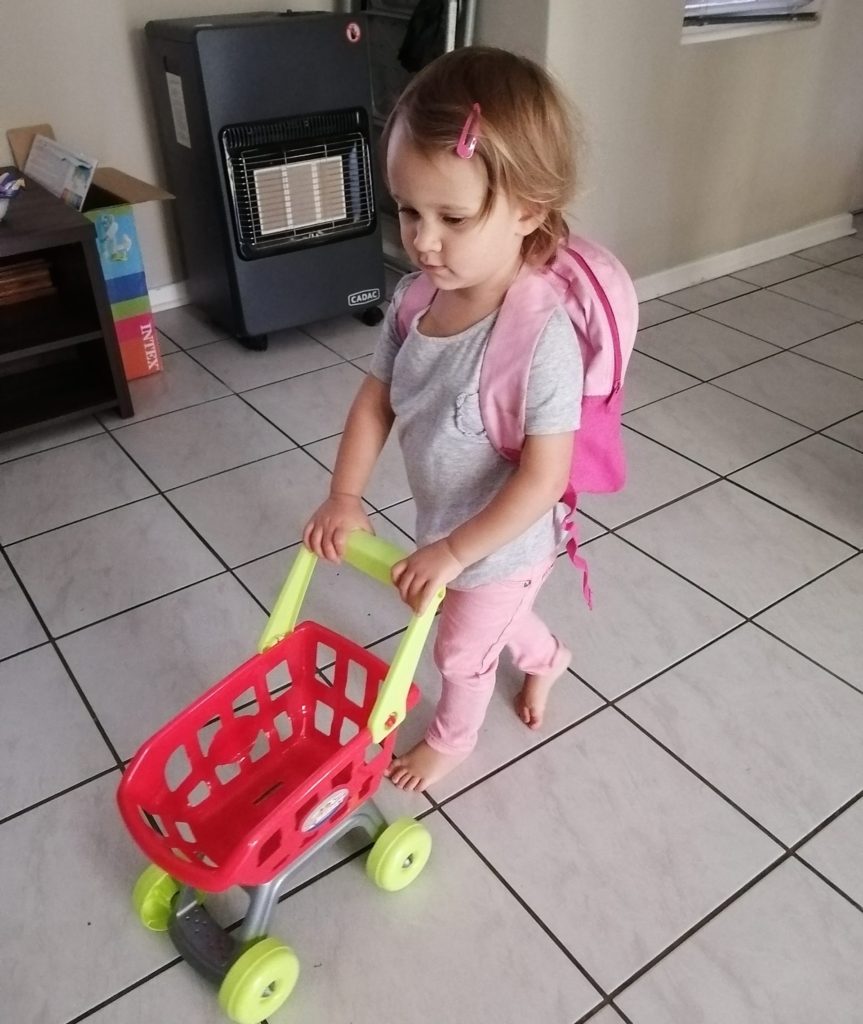
For more info on socio-emotional development milestones, please have a look at the table below:
